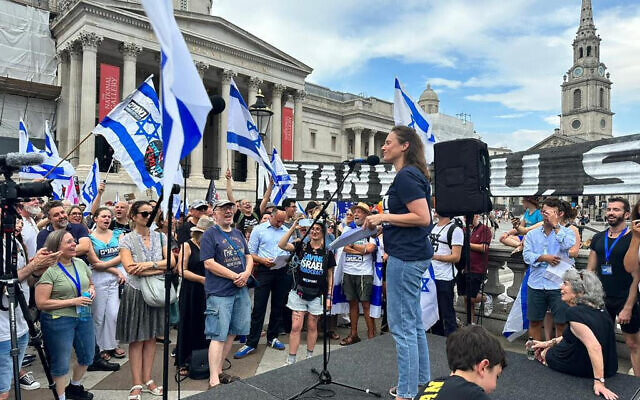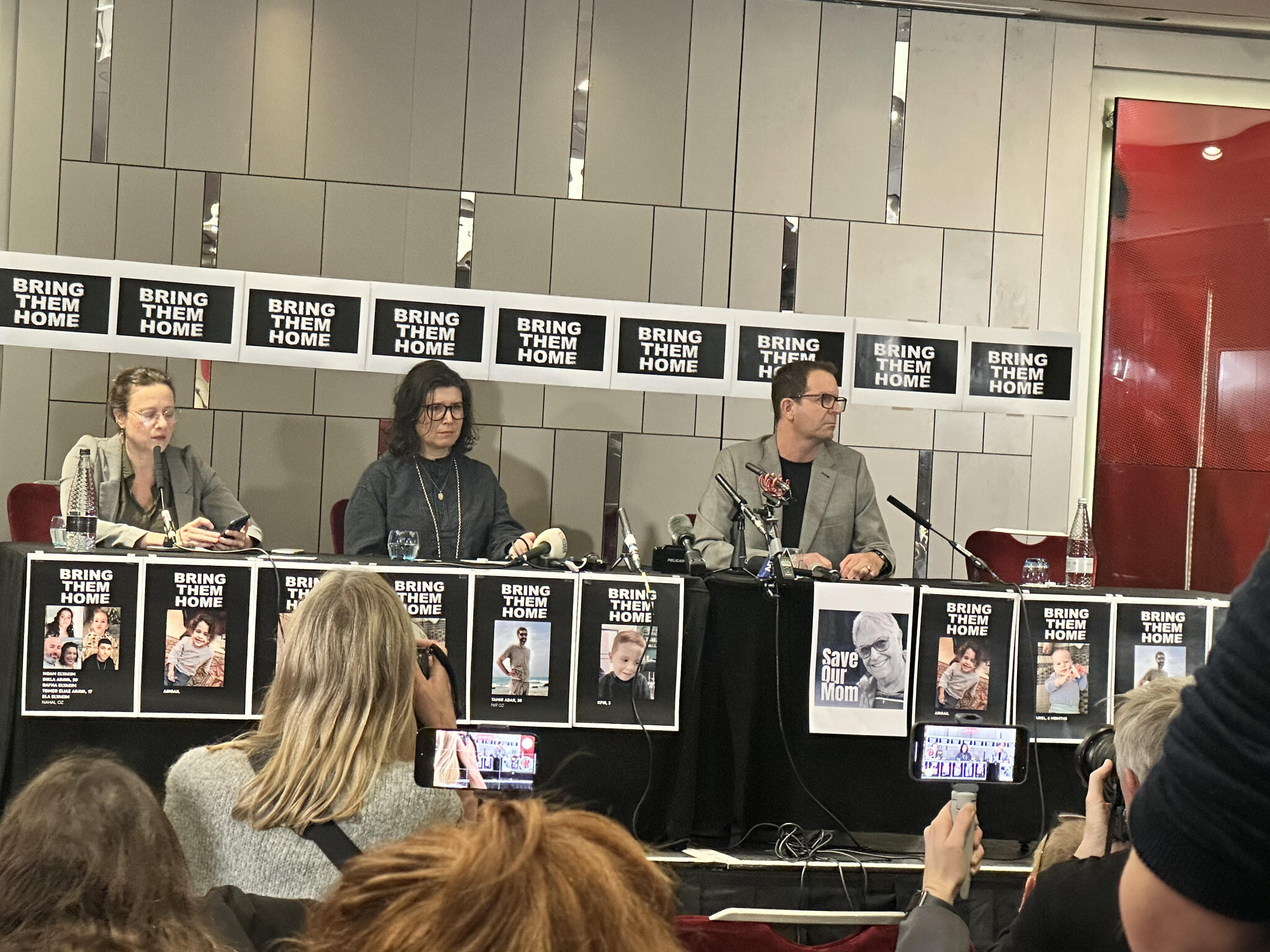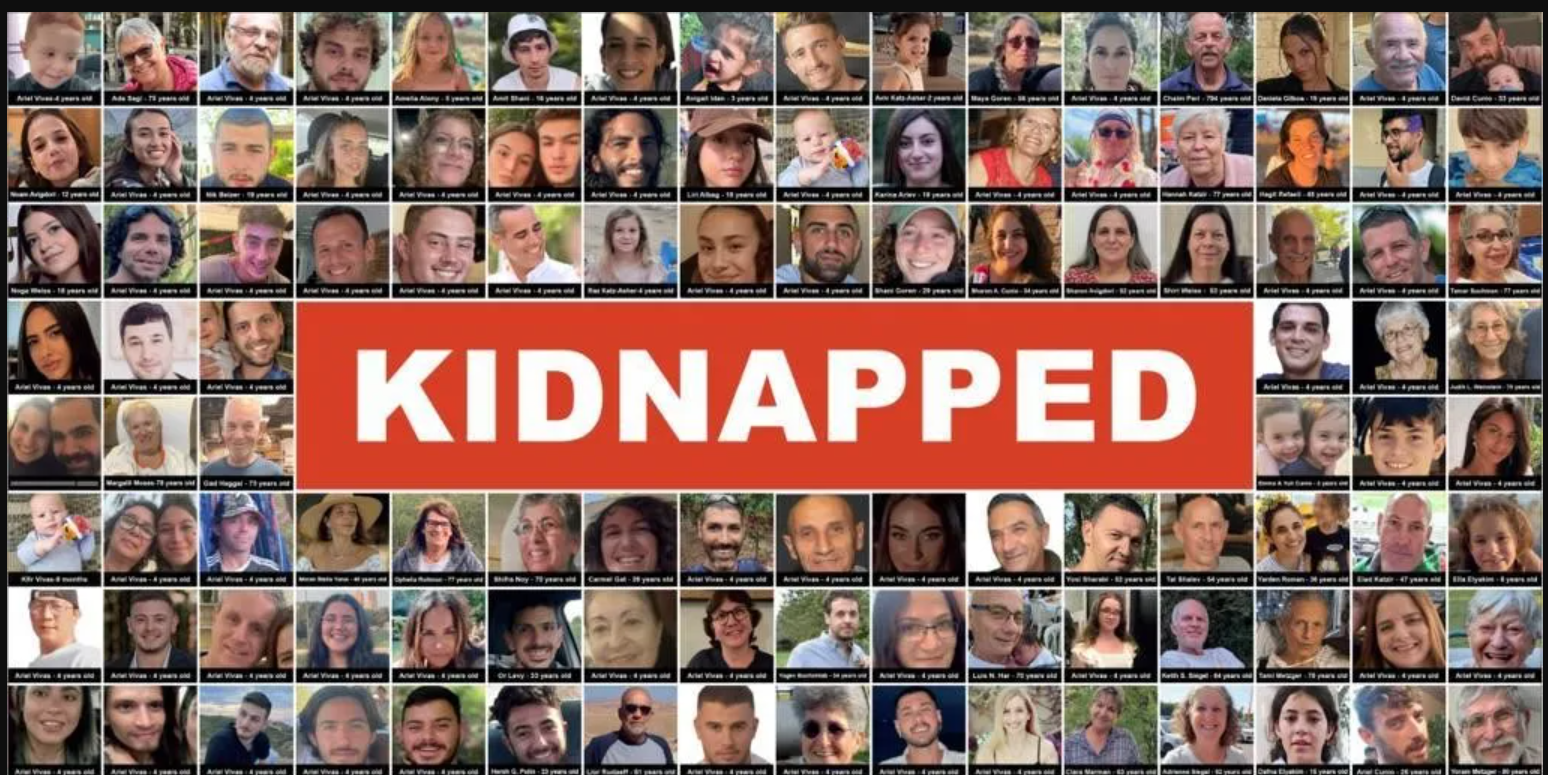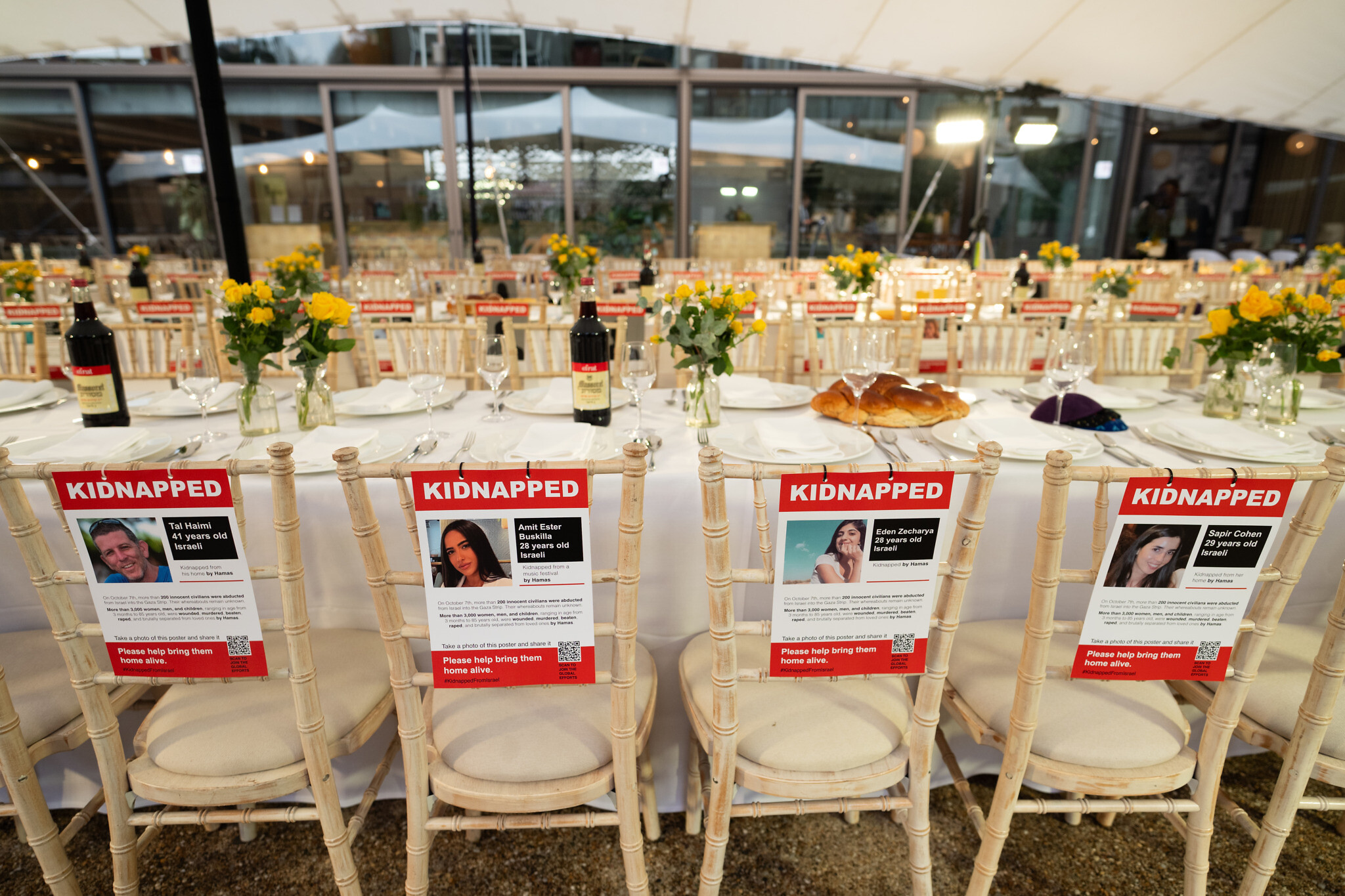The Israelis who’ve gone from protesting outside Tzipi Hotovely’s home to fighting for Israel in the media
Activists have spoken movingly of how Israelis and British Jews have come together in common cause like never before

Less than a month ago, thousands of protesters in Israel and beyond were hitting the streets to highlight Israeli politicians’ attacks on the country’s independent judiciary. More were planned. Then the world changed.
On 7 October, Hamas attacked Israel, killing 1,400 and kidnapping another 220. Within hours, Defend Israeli Democracy posted that “the global protest community will join hands to support the need of Israelis under attack”.
Among the Israelis quickly repositioning their efforts has been 48-year-old Sharon Shochat, founder of Defend Israeli Democracy UK. It is a group that came together for one purpose – to protest against judicial reform in Israel – but suddenly felt itself transitioning and repurposing towards supporting the local families of the hostages.
“That Saturday, I got hundreds of calls and messages, from people here wanting to help and from people in Israel asking for help, so we just started contributing,” she says.
A huge relief operation was set up in Israel, with support focused on those in the kibbutzim and the 360,000 reservists called up to the south, who needed food and equipment.
In London, Shochat’s protest team were asked to set up the UK desk for the Forum of Kidnapped and Missing Families in Israel, utilising the infrastructure they had made over the past nine months. She initiated the first press conference in London with families of the missing, working into the early hours that morning to pull it together.

Shochat and her team began supporting the press in its coverage using her past experience as a journalist, connecting media outlets to survivors and families of hostages. Key priorities were supporting the families of British-Israelis who had been either killed or kidnapped by Hamas, or indeed, who had survived.
Ministers say 12 Britons were killed either during or after the surprise attack on 7 October, including two teenagers, a soldier, people visiting Israel on holiday, and a 26-year-old security guard at a music festival. At least another five are being held hostage by Hamas, and five more survived the attacks on the kibbutzim.
Defend Israeli Democracy Uk teams have also supported the organisation of vigils and events in across the UK, arranged fundraising events, coordinated supplies to the front, and resettled affected families temporarily. Crucially, Shochat’s UK team was among those involved in the ‘BringThemHome’ campaign which spread globally, highlighting awareness of hostages on billboards and buildings.
“The government hasbara minister quit, thank g-d for that, as there are great civilian teams in place to do that. People are filling a vacuum created by the absence of government. It has failed to meet the needs of citizens on every level you can possibly imagine.
“In my view, these efforts in Israel are no less than a civilian shadow government,” says Shochat. “And here in the UK, we are a civilian shadow embassy. The level that civilians had to step in is shocking, including the very identification of individuals kidnapped.”

Less than a month ago, they were Saving Israeli Democracy. “I guess we’re now Saving Israel,” says Shochat. “I don’t see a contradiction between what we did before and what we’re doing now. This is more humanitarian, less political.
“It feels like a natural transition. We know how to mobilise support, we have connections where we need them, such as with politicians and the media, so we can put it into practice.”
“The Israeli security establishment has been warning about this government for months. To us it’s no accident that this awful catastrophe happened under this government. It’s exactly what we were warning about.
“The military was busy in the West Bank protecting settlers rather than protecting the kibbutzim on the Gaza border. The security cabinet is comprised of incompetent individuals with an agenda.
“Somebody was responsible here. The government failed to prevent this attack, or to take responsibility or accountability. It still hasn’t, they just blame everyone else. It took the prime minister nine days to approach the hostage families. The citizens of Israel have been deserted by this government.”
Are the judicial protests now far from Shochat’s mind? “Not necessarily, but first we need to get the hostages back, then deal with the trauma and great sense of loss in Israel. We also need to regain a sense of safety. I don’t see these things as separate efforts. Talk about the government’s responsibility has not stopped.
“Yes, we are prioritising the victims and doing what needs to be done – it’s ‘a call to the flag’ – but the protest groups are following the government’s actions, or lack of actions, very closely. Within those groups, the exact same sentiments are being heard.”
Another protester whose attention has turned to other matters is Orit Eyal-Fibeesh, 55, a mother and former officer in Israel’s Intelligence Corps who has lived in the UK for almost 20 years.
She jointly heads another group of Israelis in the UK – We Democracy – who have been protesting against the current Israeli government.
Like Shochat, she agrees that it feels like a natural transition. “We do both [the protests and the post-7/10 support] because we care so deeply. The alternative, for someone like me, is to jump on a plane to Israel, despite the risk and inconvenience. This lets me feel like I’m doing something, like I’m helping.”=
The world before 7 October looked different, she says. “We were hooked to the TV that day, 20 hours, couldn’t leave the screen. When the extent of it became clear, we knew something needed to be done. We actually had a [UK] protest planned for 15 October, the day before the Knesset was due to resume.
“Straight away, we Israelis in places like London, Cambridge, Oxford, Dublin, and Leeds decided to shift our power and mobilise, to meet the needs arising on an hourly basis – mental health support, hospitality for people who were stranded here, donations, rallies, vigils, installations, you name it.
“We are still a grassroots group, but I now spend about 20 hours a day on these things and on hasbara, or spokesmanship, which was non-existent in the early days. It’s only a little better now.
“We feel we have an obligation to communicate, to petition, to explain what happened, and this starts from within. As a community – both Israeli and British Jews – we need to be on the same page.
“Traditionally, the Israelis in the UK and the British Jewish community always kept themselves separate. They didn’t mix. Now, they’ve all come together as one.”
It’s an interesting observation. Having covered this area for ten years, I always got the impression that the Israelis wanted to stay separate and do their own thing.
“Really? We felt the opposite. We felt that we were ex-communicated [by the British Jewish community] for being too direct, maybe our accents were too strong! But seriously, this divide or separation, it became non-existent now.
“A lot changed when we managed to organise protests and get the Jewish community involved, with some of the rabbis – Sharon did amazing work on this.
“Traditionally, the British Jewish community was right-wing and conservative, never wanting to speak up and criticise Israel. That’s no longer the case. Something changed. Now we are one, Jewish and Israeli, all fighting for the lives of the kidnapped, all donating, all helping. People are beyond themselves trying to help.”

Three weeks after the attack, Orit says the group’s work is changing. “The mental health requirement is increasing as the war takes its toll. Also, families that were stranded here are being replaced by families who either lost their homes or who just feel safer here, so the hospitality initiative is still very important.”
Israeli families are coming to the UK simply because they feel safer here? “Yes,” she says, matter-of-factly. “I just had breakfast with a friend whose father and mother-in-law and three nephews were here for three weeks, no plans to return.
“My neighbour’s son made aliyah, married, and had a child – they’re all here, no plans to return. Many, many people came here in recent days, because they don’t feel safe in Israel at the moment.
“Whether that’s a rational fear or not, I don’t know, but the reality is that people are scared. Not everyone can cope. My brother is so cynical, always making jokes, but the day after, he walked around the house with a pistol. People’s sense of security has been totally shaken.”
Does she blame the Israeli government for that? “I blame the government for almost everything else, but I don’t quite blame it for this [atrocity],” she says. It’s “corrupt, irresponsible and useless”, she says, but that’s not the focus right now.
“Still, the things we’ve been saying about this government for the past nine months, people are maybe now waking up to the fact that we may have been right.”

Thank you for helping to make Jewish News the leading source of news and opinion for the UK Jewish community. Today we're asking for your invaluable help to continue putting our community first in everything we do.
For as little as £5 a month you can help sustain the vital work we do in celebrating and standing up for Jewish life in Britain.
Jewish News holds our community together and keeps us connected. Like a synagogue, it’s where people turn to feel part of something bigger. It also proudly shows the rest of Britain the vibrancy and rich culture of modern Jewish life.
You can make a quick and easy one-off or monthly contribution of £5, £10, £20 or any other sum you’re comfortable with.
100% of your donation will help us continue celebrating our community, in all its dynamic diversity...
Engaging
Being a community platform means so much more than producing a newspaper and website. One of our proudest roles is media partnering with our invaluable charities to amplify the outstanding work they do to help us all.
Celebrating
There’s no shortage of oys in the world but Jewish News takes every opportunity to celebrate the joys too, through projects like Night of Heroes, 40 Under 40 and other compelling countdowns that make the community kvell with pride.
Pioneering
In the first collaboration between media outlets from different faiths, Jewish News worked with British Muslim TV and Church Times to produce a list of young activists leading the way on interfaith understanding.
Campaigning
Royal Mail issued a stamp honouring Holocaust hero Sir Nicholas Winton after a Jewish News campaign attracted more than 100,000 backers. Jewish Newsalso produces special editions of the paper highlighting pressing issues including mental health and Holocaust remembrance.
Easy access
In an age when news is readily accessible, Jewish News provides high-quality content free online and offline, removing any financial barriers to connecting people.
Voice of our community to wider society
The Jewish News team regularly appears on TV, radio and on the pages of the national press to comment on stories about the Jewish community. Easy access to the paper on the streets of London also means Jewish News provides an invaluable window into the community for the country at large.
We hope you agree all this is worth preserving.





















